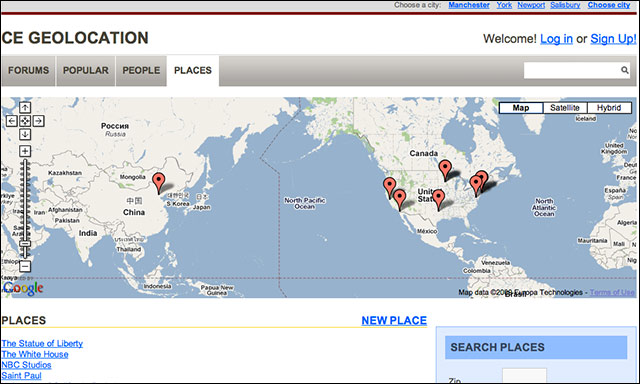CommunityEngine: Gets i18n, FaceBook and Geolocation Plugins, And More
We first wrote about CommunityEngine, a social networking plugin for Rails, a year ago. Since then, it's come on leaps and bounds and even has some plugins of its own available.
Rails' addition of i18n (internationalization) support affords CommunityEngine the ability to create sites for a vast number of world communities, making it a much more attractive Rails plugin than when it was first reviewed here. Out of the box, CommunityEngine supports 5 locales, but the implementation makes supporting additional locations a straightforward process. CommunityEngine uses the MIT license and you can inject user profiles, forums, (multiple) photo uploading (including S3 support), commenting, and user friendships into your Rails project with a single script/plugin command. Built-in support for blogs, private messaging, events and activity feeds, and also a handful of commercial plugins from it's creator, Bruno Bornsztein, make development with CommunityEngine an enjoyable process.
The above image is an example app using the newly released geolocation plugin, which allows you to create functionality, as seen, using your existing mysql installation. It's a nice example of mapping without requiring Postgres/PostGIS. Other commercial plugins exist as well, including one which adds support for an iPhone UI, as well as another which adds Facebook login/integration, two things which add significant dynamism to a community-oriented website.
If you submit "CommunityEngine" to search engines, a series of articles and blog posts describing convoluted installation scripts and/or procedures, and additional commentary with regard to a lack of documentation results. Having made a small app in the past, the code has always been very well-documented despite the searched opinion, and there are also a number of instructional tutorials available at http://communityengine.org. A quick visit to the project's website revealed instructions for deploying to both Heroku and EC2, it's known to work with Engine Yard's Cloud, and versions of Rails for the past year have allowed for template-based enhancement by issuing command-line switches. To get started using CommunityEngine, create a Rails app by issuing:
rails ri_ce_sample_app -m http://www.communityengine.org/install_template.rb











December 9th, 2009 at 2:37 pm
Thanks for the write-up, Grant! Just wanted to point out we have a list of live, production sites using CE at: http://www.communityengine.org/live.html
January 11th, 2010 at 9:50 pm
CommunityEngine is fantastic! We use it at http://www.openwine.com and it was that easy to internationalize the site. Thank you Bruno for all your work.
Christian